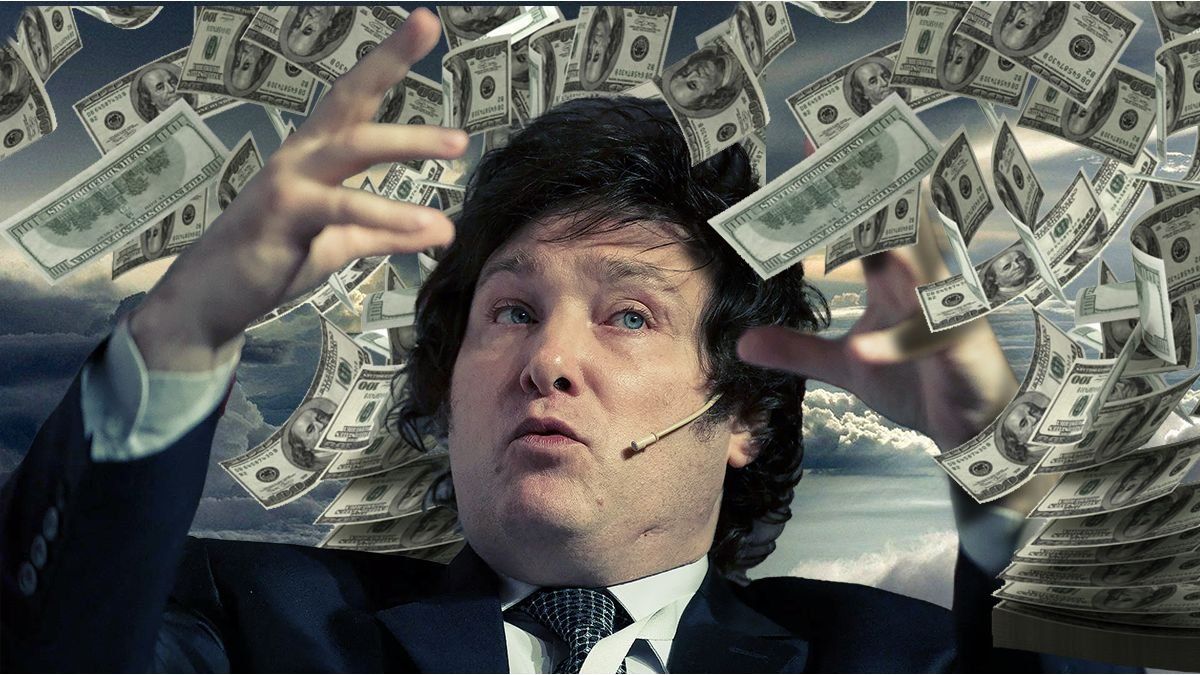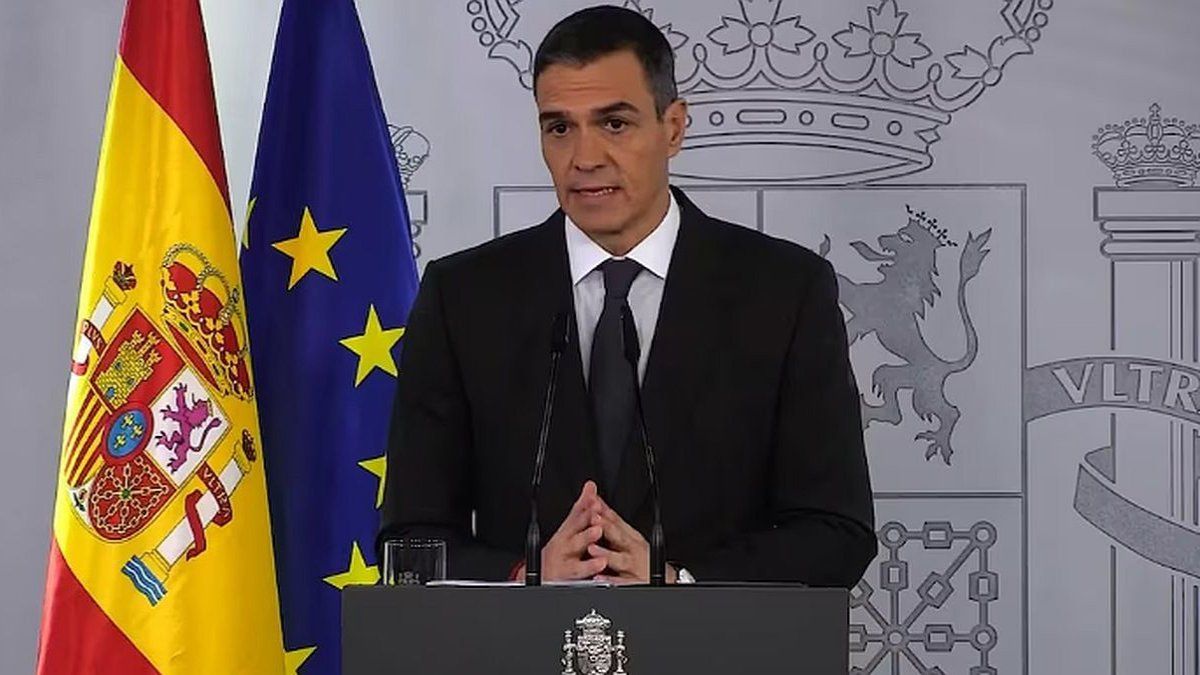Dollarization: economists questioned Javier Milei’s dollarization plan
The publication includes the signatures of economists from all ideological spectrums, from Miguel Angel Broda, Roberto Frenkel, José Luis Machinea, Daniel Marx, Juan Llach, Marina Dal Poggetto, Daniel Heymann, to Nicolás Gadano, Ricardo Delgado, Andrés López , Miguel Kiguel, Eduardo Levi Yeyati, Javier González Fraga, Diego Bossio, Martín Rapetti and the signatures continue to add.
And they add: “Although the promise of having a stable currency has surely generated the hope of large sectors of the population punished by the continuous erosion of the purchasing power of their income, international experience and the situation of our economy itself indicate that the proposal in question It is far from a panacea. and that, on the contrary, could generate multiple difficulties for our immediate and future performance“.
The text states that in the first place there is an “insurmountable” obstacle that is lack of dollars to carry out the plan. He also points out that a dollarization regime is inappropriate for a complex economy like Argentina’s that is poorly correlated with the United States.
“The existing proposals to repair this shortage of foreign currency They represent absurd increases in public debt that would further compromise the perception of unsustainability of government finances. The only alternative, then, would be to dollarize at an exchange rate so high that would cause an additional spiraling of inflation as a consequence of the collapse of real money demand which would presumably trigger the mere announcement of moving in that direction. Provoking a (hyper)inflationary outbreak does not seem like a very auspicious start to stabilizing the economy.”he remarks.
The lack of dollars is an “insurmountable” obstacle for Milei’s plan, say the economists who sign the document.
And he continues: “In addition, even in the regime – and after paying these unnecessary and enormous initial costs – the operation of the scheme is entirely inappropriate for the characteristics of a complex economy and very little correlated with the US macroeconomic cycle like Argentina. Although the credibility provided by the monetary anchor could cause an eventual convergence at some point to the US inflationary records, the macroeconomic functioning would be plagued by rigidities and difficulties“.
Economists also talk about the obstacles that would arise from the “fiscal side”, highlighting that “monetary alchemies are not an adequate substitute for a firm commitment to the intertemporal balance of public accounts.” Indeed, “the scheme is based on the fantasy that the government will be forced to immediately balance its budget, something that also belies” the country’s own experience in the past.
And he gives Ecuador as an example, “that has already experienced a couple of default episodes since it adopted the dollar as its currency.
Finally, they warn that “the formal dollarization of an economy is very difficult to reverse due to their high exit costs, even when there are well-founded macroeconomic reasons for abandoning them at a given time.
“Let us not allow, for myopia and despairthe difficult situation in which we find ourselves leads us to take a false shortcut that will only lead us to a new and more dramatic frustration,” the experts conclude.
In any case, they warn that the country “is, once again, going through a difficult crossroads: a stagnation that has been going on for more than a decade – which is, in reality, a sharp drop in per capita income – and a picture of increasing macroeconomic imbalances and inflationary lack of control, with records that are already in the double monthly digits.”
“Instability and lack of growth are at the base of the rapid expansion of poverty and inequality that affect our society,” they add. But although they warn that the main challenge of the next administration will be to stabilize the economy as a necessary condition to recover growth, they speak out against dollarization.
In addition to Miguel Angel Broda, José Luis Machinea, Daniel Marx, Diego Bossio and Javier González Fraga, the document is also signed by Santiago Alfonso, Hildegart Ahumada, Juan Miguel Arranz, Daniel Aromí, Francisco Ballester, Iván Baumann Fonay, Luis Beccaria, Ricardo Bebczuk, Roberto Bisang, Damian Bonari, Andrés Borenstein, Roberto Bouzas, Marcos Buscaglia, Agustin Campero, Jimena Calvo, Gustavo Cañonero, Ricardo Carciofi, Maximiliano Castillo, Oscar Cetrángolo, Horacio Cepeda, Javier Curcio, Laura D’Amato, Carlos Dabus and Ricardo Delgado.
Also signing are Néstor De Cesare, Marina Dal Poggetto, Ariel Dvoskin, Alejandro Einstoss, Pedro Elosegui, José María Fanelli, Roberto Frenkel, Federico Filippini, Federico Forte, Nicolás Gadano, Leonardo Gasparini, Pablo Gerchunoff, Juan Carlos Hallak, Vistor Iajya, Juan Pablo Jiménez, Daniel Kampel, Jorge Katz, Sebastian Katz, Miguel Kiguel, Saul Keifman, Bernardo Kosacoff, Daniel Kostzer, Eduardo Levy Yeyati, Juan Jose Llach, Pedro Lines, Emiliano Libman, Silvia London, Andrés López, Jorge Lucángeli, José Luis Maia, Roxana Maurizio, Ariel Melamud, Sebastián Menescalid, Jerónimo Montalvo, Gabriel Montes Rojas, Fernando Navajas, Javier Okseniuk, Iván Ordóñez, Gabriel Palazzo, Rodrigo Pena, Pablo Agustín Pero, Federico Poli, Diego Petrecolla, Alberto Porto, Adrián Ramos- Martín Rapetti, Carlos Romero, Guillermo Rozenwurcel, Ricardo Rozemberg, Lorenzo Luis Secco, Paula Szenkman, Pablo Sigault, Daniel Sticco, Matías Surt, Gustavo Svarzman, Danilo Trupkin, Santiago Urbiztondo, Carlos Winograd and Jimena Zuniga, among many others.
Source: Ambito




